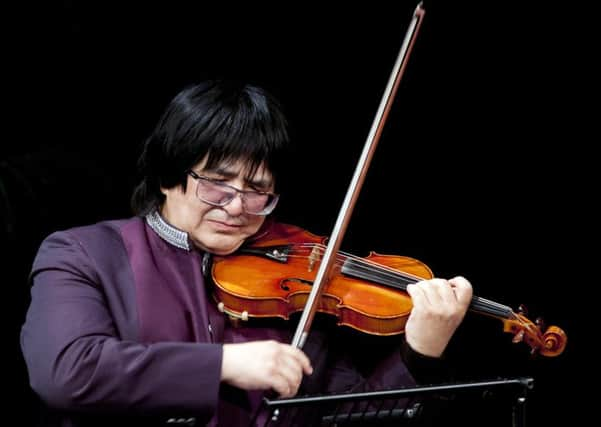‘Crazy’ dream which led to the Symphony Orchestra of India


But established the ensemble was, as the Symphony Orchestra of India, in Mumbai in 2006 and the Orchestra visits Edinburgh’s Usher Hall on Sunday as part of a six-stop UK tour. It’s the ensemble’s first trip to the UK – an occasion which its co-founder Bisengaliev accepts is a major milestone in the young orchestra’s own development.
With a Kazakh-born, long-time UK resident as the driving force behind a Mumbai-based ensemble, the SOI’s origins are far from straightforward. And, as Bisengaliev explains, they were almost accidental. “I was playing with my West Kazakhstan Philharmonic Orchestra in London, and by chance the chairman of Mumbai’s National Centre for the Performing Arts, Khushroo Suntook, decided to stop by and listen to us. Luckily for me, he was impressed and invited us to perform in Mumbai.” That Indian concert came just three months later, and was attended by an even more influential figure: Jamshed Bhabha, NCPA founder and former Tata multinational conglomerate executive. Bisengaliev continues: “Dr Bhabha said to us: ‘I want the same kind of orchestra here.’”
Advertisement
Hide AdAdvertisement
Hide AdWith substantial financial backing and high-level enthusiasm for the project, Bisengaliev found himself facing the practical challenges of getting the project off the ground. His biggest hurdle, he says, was simply finding enough Indian musicians to play in the ensemble. “If it’s called the Symphony Orchestra of India, we had to have Indian players as its base,” he explains. “But there are almost no professional players in India. I listened to hundreds, but I found only very few who were talented, and they were often self-taught and had started very late. Something had to be done.”
Bisengaliev’s first, short-term solution was to fly in non-Indian musicians to bolster the orchestra’s ranks. But he had another intention behind their presence. “I brought in players I knew from Russia, Ukraine, Turkmenistan and Kazakhstan, for instance, but they were also teachers, and we put together an intensive crash course for adults in Western music, which proved to be a success. We now have about 12 players who came through that system.”
His longer-term goal, however, was to set up a centre for elite musical study in India, and the NCPA’s Special Music Training Programme now serves as a springboard for entry into the orchestra itself. “We had to establish something that would provide for the orchestra’s future,” he explains. “Our music school is India’s first with a proper system for teaching Western music, modelled on Moscow’s Gnessin School, and with the same kind of curriculum.”
Founded in 2012, the school has already fed exceptional players through into the orchestra. And that success has given rise to an additional problem: retention. “Many of our young players want to pursue a career in the West,” Bisengaliev explains, “which is completely natural. But my biggest challenge now is to persuade these kids to stay in Mumbai and stay with the orchestra. We need to create the right conditions, so that they’re on a par or even more attractive than those in Europe.”
Bisengaliev is still very much at the centre of things with the orchestra and its training programme, and accompanies the SOI as violin soloist on the UK tour, playing Bruch’s much-loved First Violin Concerto in Edinburgh. How does he feel about his sudden close relationship with India? “It’s a country you either love or hate. But I believe it’s a kind of karma that I’ve become so involved. The more I experience life in India, the more I feel I’m meant to be here. I now spend most of my time in Mumbai during the year. I like the people, the weather, the food, the work. This work – both the orchestra and the school – is for me like the best holiday.” - David Kettle
The Symphony Orchestra of India under conductor Martyn Brabbins, with violin soloist Marat Bisengaliev, performs at the Usher Hall, Edinburgh, 24 February